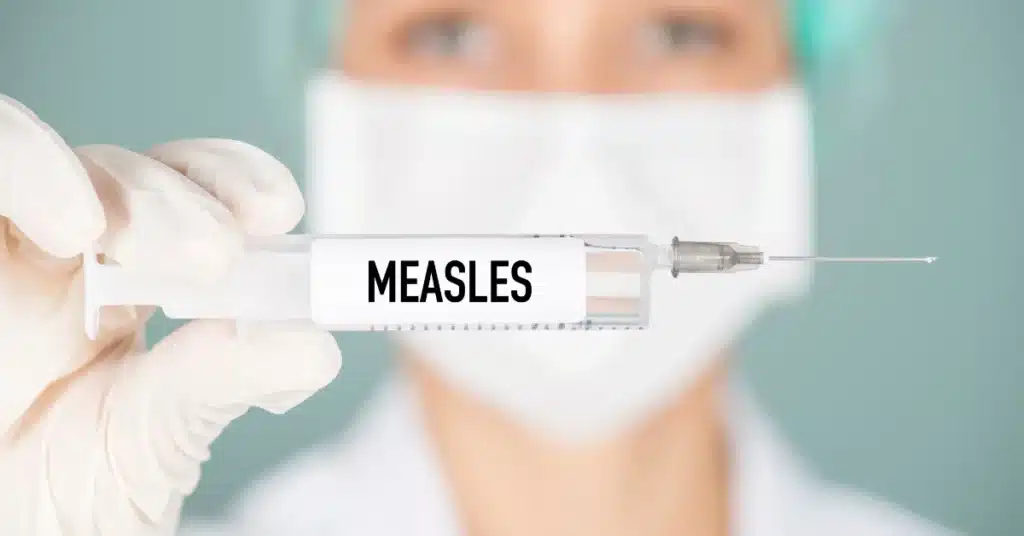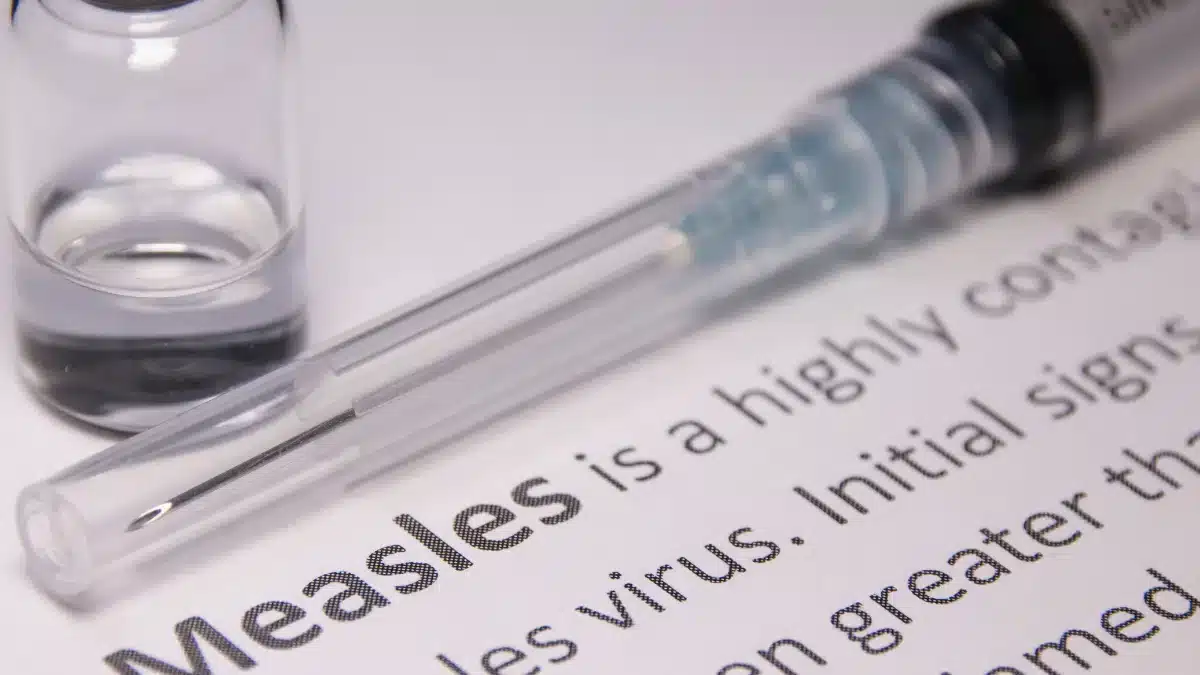Measles Resurgence: Addressing Vaccination Challenges and Misconceptions
Measles, once eradicated in the U.S. two decades ago, is resurfacing, causing worry as outbreaks increase despite the presence of an effective vaccine.
The Measles vaccine boasts a 100% effectiveness rate, surpassing the COVID-19 vaccine, yet outbreaks persist, particularly impacting the unvaccinated in the U.K. and the U.S.
The CDC urges healthcare providers to be vigilant for Measles symptoms, like a rash, cough, swollen eyes, and flu-like feelings, especially in patients with recent international travel.
In Philadelphia, eight confirmed cases since December 2023 highlight the resurgence, tracing back to a foreign traveler and spreading at a daycare facility and hospital.
Although Measles cases have been low in recent years, the ongoing outbreaks are worrisome.
Contributing factors include a decline in routine childhood vaccination rates and infections introduced by foreign travelers.
Dr. Peter Hotez, a pediatric and molecular virology professor at Baylor College of Medicine, is worried about declining vaccination efforts in the U.S.
According to a CDC report, 93% of kindergarteners received routine childhood vaccines, including the Measles, Mumps, and Rubella (MMR) vaccine, for the 2022-23 school year.
While the highly vaccinated population is less susceptible, roughly 20% of U.S. individuals contracting Measles may require hospitalization.
Measles poses severe health risks, particularly in children under 5, causing ear infections, Diarrhea, Pneumonia, Encephalitis, and fatalities.

Introduced in 1963, the Measles vaccine significantly reduced cases, hospitalizations, and deaths.
The CDC recommends the first dose at 12 to 15 months and the second between ages 4 and 6, with effectiveness rates of 93% for one dose and 97% for two.
Despite the decline, occasional cases persist, emphasizing the importance of sustained vaccination efforts.
Since 2000, there has been a significant reduction in hospitalizations and deaths, from three deaths in the Americas to just one in 2022.
Dr. Paul Offit, director of the Vaccine Education Center, emphasizes the power to prevent and stop measles, urging parents to fear the virus and highlighting the fortunate difference that today, unlike his parents’ time, effective measures are available.”
The CDC reports that over 61 million Measles vaccine doses were delayed or missed worldwide from 2020 to 2022. This raises the risk of outbreaks in the U.S. and other countries.
Despite Measles being common in places like Yemen and India, it shouldn’t be causing outbreaks in wealthier nations like the U.S. and the U.K., according to Dunn-Georgiou.
A decline in vaccination rates can be attributed to various factors. One key reason is a 1998 paper in The Lancet by Andrew Wakefield, suggesting a link between the MMR shot and Autism.
Although subsequent studies debunked this claim, and the journal retracted the paper, lingering fears persist.
In the Columbus, Ohio, outbreak from November 2022 to February 2023, public health officials noted that parents of unvaccinated children infected with Measles had opted against the MMR shot due to misconceptions linking it to Autism.
Since the Andrew Wakefield article, there have been widespread misconceptions and ongoing misinformation about the MMR vaccine.
The increase in cases highlights the ongoing issues with vaccine hesitancy. It emphasizes the importance of maintaining high vaccination coverage for herd immunity.

We must make focused efforts to address these concerns and ensure our public health system can effectively manage outbreaks.
Another reason for declining vaccination rates could be people forgetting the seriousness of diseases pre-vaccination due to decreased circulation, as suggested by experts.
The issue extends beyond the United States. Measles cases worldwide have seen a notable increase in recent years, rising by 18% from 2021 to 2022.
This increase is linked to a drop in vaccinations in recent years, as reported by both the World Health Organization (WHO) and the Centers for Disease Control and Prevention (CDC) last year.
Global deaths rose by 43% during the same period, with 37 countries facing significant outbreaks in 2022, compared to 22 in 2021.
Experts stress ongoing efforts to inform parents about vaccine safety, proposing the introduction of vaccine education in adolescence.
It’s risky to leave a crucial percentage of children unvaccinated,” warned Offit. “This is a perilous and avoidable gamble.”
The vaccine is proven to be safe and effective. The virus can lead to significant suffering, hospitalization, and occasional death.
Let’s not take chances with this virus, or the consequences will be even more severe than what we’re experiencing now.
